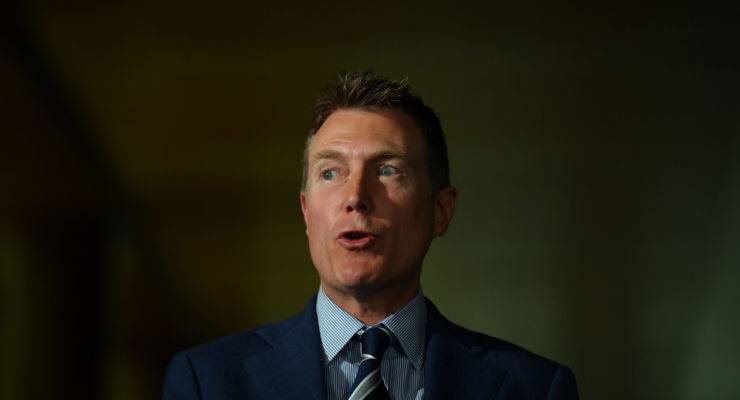
Embattled Attorney-General Christian Porter has commenced defamation proceedings in the Federal Court against the ABC and journalist Louise Milligan over allegations he was the perpetrator of a historical rape.
The attorney-general, who is on medical leave, is seeking aggravated damages over an ABC article from February 26.
Since Porter was named as the minister involved in the allegation days later, the government has strenuously resisted growing calls for an independent inquiry into the attorney-general.
But a potential high profile defamation trial would achieve many of the same aims — testing the evidence against Porter before court, putting key witnesses on the stand, and scrutinising the incident in a non-criminal context.
If successful, Porter and the government would no doubt see this as a sign that the attorney-general has been vindicated. He’s assembled a star-studded legal team to fight the claim. It includes Bret Walker SC, arguably Australia’s top barrister who successfully argued for Cardinal George Pell’s acquittal in the High Court last year.
Joining Walker is top Sydney defamation silk Sue Chrysanthou SC, who represented actor Geoffrey Rush in his $2.9 million defamation win against The Daily Telegraph. They’re being assisted by reputational risk expert Rebekah Giles, who worked for former Liberal staffer Brittany Higgins over a now-settled defamation complaint against Defence Minister Linda Reynolds.
While Porter was not named in the February 26 article, nor in resulting media commentary until his press conference days later, his legal team say he was “easily identifiable to many Australians” as the subject of the allegations.
Porter’s statement of claim also points to an interview with Malcolm Turnbull and last week’s episode of ABC’s Media Watch as evidence his identity was widely known after Milligan’s article first broke.
It also cites Milligan’s controversial Four Corners episode from last November, which portrayed Porter as “a sexist and misogynist”, as further evidence supporting his identifiability.
“The ABC and Milligan were frustrated that they were unable to broadcast (the woman’s) allegations in the November Four Corners as they intended (because they were indefensible) and thus disingenuously published the article without naming Porter, in order to give effect to their intention to harm him.”
Milligan is also accused of acting with malice, and failing to disclose a “close personal friendship” with a friend of the alleged victim.
That much was alluded to in a statement put out by Giles, which claimed Porter had been the victim of a “trial by media” which should “end with the commencement of these proceedings”.
“The claims made by the ABC and Ms Milligan will be determined in a court in a procedurally fair process,” Giles said.
“Mr Porter will have and will exercise the opportunity to give evidence denying these false allegations on oath.”
That Porter is turning to defamation law, with this particular legal team, to clear his name represents something of a departure from some of his work as attorney-general. He was previously responsible for attempts to overhaul Australia’s defamation laws.
And he’s also tried to stop Walker, now his barrister, from acting for Bernard Collaery in the government’s controversial prosecution, on national security grounds. Walker is a former national security monitor.
All of that is now out the window ahead of what could be one of the biggest trials in Australian legal history. If Porter’s case ends up in court, Australia’s plaintiff-friendly defamation law gives him a very good chance at winning.
If the ABC apologises and retracts before it gets there, then the attorney-general gets a pyrrhic victory, and media companies become even more reluctant to touch such allegations again.








Crikey encourages robust conversations on our website. However, we’re a small team, so sometimes we have to reluctantly turn comments off due to legal risk. Thanks for your understanding and in the meantime, have a read of our moderation guidelines.